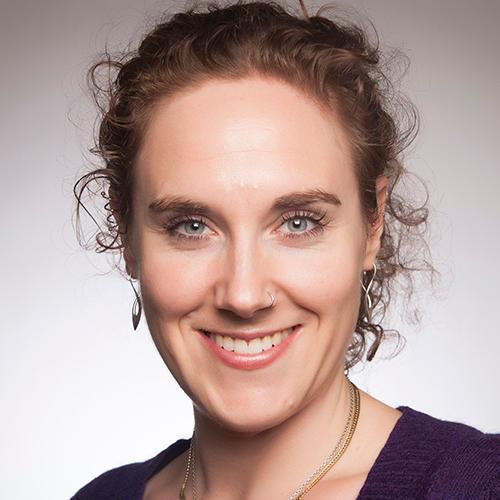
Julia Voss
Julia Voss studies composition and literacy and teaches classes in college writing and digital composing. She has also taught scientific, business, and technical writing and worked as a writing consultant.
Voss uses qualitative research methodologies and multimodal presentation formats to examine the relationship between reading and composing experience in classroom, community, and professional contexts. She is particularly interested in how individuals access literacy resources in formal and informal learning situations and in how they transfer them across environments. Her previous work takes a task-based view of literacy and composing, tracing how individuals 1) access material and intellectual literacy resources found in the institutions in which they are embedded and 2) use these resources to support specific digital composing tasks. This project examine how the process of composing a multiauthored digital text is shaped by 1) group members’ social and professional backgrounds and relationships and 2) the physical and virtual spaces in which they work. In other recent and current projects, she looks at the relationships between students’ childhood experiences with computers and their current attitudes toward technology and between students’ composing practices and the social character of the non-classroom campus spaces (dorm rooms, libraries, student unions, et cetera) in which they work.
Her research focuses on digital literacy and composing, but in the classroom she approaches the digital from a writing- and literacy studies perspective that focuses on context, purpose, and mode to emphasize continuities across print and digital media. Using this “multiliteracies” approach, she leads group and individual alphabetic writing, digital production, and oral performance activities to teach academic and professional reading and composing skills. Her classroom pedagogy strives to create an interactive classroom environment characterized by discussion and composing activities. She invites students to apply and critique the course’s thematic and methodological content and provide a supportive, peer-based environment in which students practice the skills required for their in- and out-of-class work. She also involves students in designing assignment prompts and grading rubrics in order to explicate my learning goals and cultivate students’ engagement in and responsibility for their learning.
- Critical Thinking and Writing
- Introduction to Writing and Digital Publishing
The Best of the Independent Rhetoric and Composition Journals 2011. Co-edited with Steve Parks, Beverly J. Moss, Brian Bailie, and Steph Ceraso. West Lafayette, IN: Parlor Press. Print. (in preparation)
“'So my computer literacy journey…': Re-creating and Re-thinking Technological Literacy Experience through Narrative.” Stories That Speak to Us: Exhibits from the Digital Archive of Literacy Narratives. Ed. H. Lewis Ulman, Scott Lloyd DeWitt, and Cynthia L. Selfe. Logan, UT: Computers and Composition Digital Press, 2013. Web.
Designer credit: Brueggemann, Brenda Jo. “Articulating Betweenity: Literacy, Language, Identity, and Technology in the Deaf/Hard-of-Hearing Collection.” Stories That Speak to Us: Exhibits from the Digital Archive of Literacy Narratives. Ed. H. Lewis Ulman, Scott Lloyd DeWitt, and Cynthia L. Selfe. Logan, UT: Computers and Composition Digital Press, 2013. Web.
Captioner credit: Selfe, Cynthia L. “Messages to Gail.” Kairos 16.2 (2011). Web.